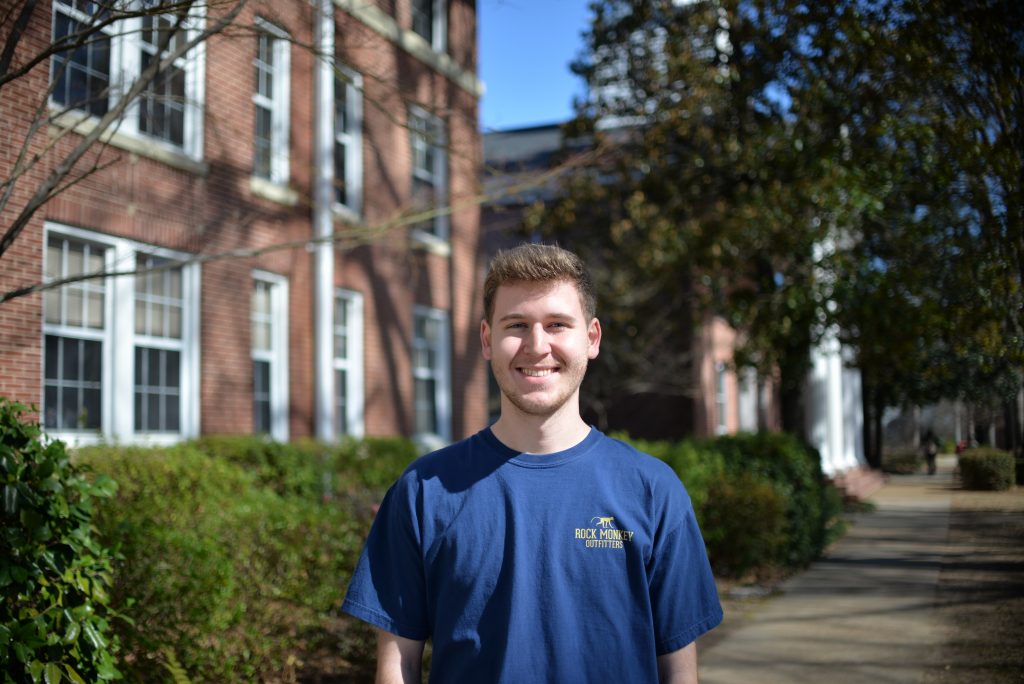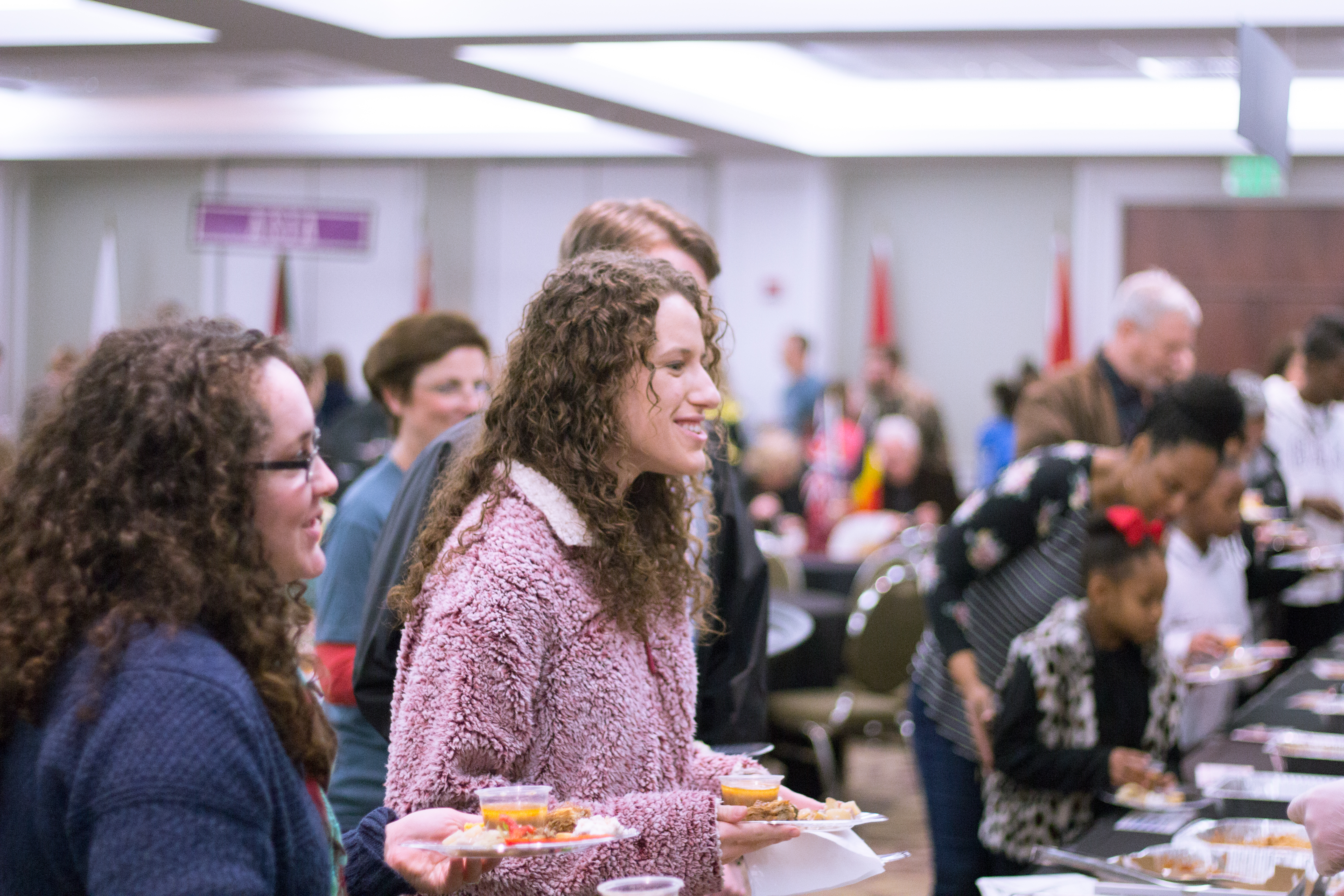Believe it or not, food is a major aspect of culture. Here at Ouachita, there is a wide variety of cultures represented from around the globe. Each February, the Grant Center for International Education and the International Club host the International Food Festival. This is a unique event where International students can cook foods from their country and share it with fellow students, most of whom do not have much international exposure.
Abigail Brizuela is a sophomore business administration and management major from San Pedro Sula, Honduras. She is excited about participating in the International Food Festival.
“I really like the fact that as internationals and MK’s [missionary kids] we get to share part of our culture with fellow students,” Brizuela said. “It’s a great way for everyone to get to know us and bond over food. It’s definitely one of my favorite events during the spring and I can’t wait for everyone to come and celebrate the many nations represented at Ouachita.”
There are many things Brizuela appreciates about her home country of Honduras. A few of these include the beaches, the fresh, unprocessed coconut water, and the constant warm weather. Regarding the food she will prepare, Brizuela said that she will be making tacos flautas; the correct term for what Americans call taquitos.
“This dish is significant to my culture simply because they are delicious and easy to make,” Brizuela said. “I chose this dish because tacos are one of my favorite foods [and] that’s what my grandmother cooked for me before I left Honduras in January.”
Another student who will be at the Festival is Susanna Schleiff, a freshman environmental studies major from Arkadelphia, Ark. Schleiff spent several years in China as a missionary kid and is looking forward to the Festival and will also be cooking for the event.
“I’m representing South Korea, but I actually lived in China for eight years,” Schleiff said. “My sister is already doing food from China, and a lot of my friends in China were actually from South Korea, so I thought I would do food from there. Also, I’ve eaten loads of Korean food the past eight years.”
Out of the many Korean dishes Schleiff could prepare, she chose one which reflects her time spent with good company.
“I’m making Bulgogi which is pretty much grilled marinated beef with mushrooms, garlic, rice noodles, soy sauce, and some other stuff,” Schleiff said. “The Korean moms at my school would always make bulgogi once a week for lunch and it was amazing. Pretty much every Korean restaurant serves bulgogi since it’s one of South Korea’s more popular dishes.”
With regards to China, where she spent most of her time abroad, Schleiff described what sort of foods she ate there.
“China has a lot of really good bread and meat based foods like jiao zi and bao zi (dumplings) along with different stir-fried vegetables,” Schleiff said. “One type of street food that they make there is called jian bing, and it’s kind of like a savory crepe. The outside is a kind of really thin eggy pancake/bread/wrap and its filled with coriander, scallions, crispy-fried crackers, sauce, and sometimes meat. It tastes amazing!”
Tristan Benzon, a junior history and psychology double major from Harare, Zimbabwe, is the current president of the International Club. Most of his responsibility is working with both students and the faculty to bring this event to fruition.
“I also help with media and entertainment for the festival,” Benzon said, “but really, Dr. Houser, Mrs. Cosh, Mrs. Jackson and Amy Gattis are the true leaders here, they make everything possible!”
Benzon shared one of his favorite things about the International Food Festival.
“It’s the chance to give back to the university and community that’s helped us so much. Food is expressive and the festival allows us to express our love for home and culture into a dish for many to enjoy. Many internationals get homesick and lonely, the food fest allows us to remember home and share it with friends, coping with homesickness is never easy but putting joy into the food we make helps alleviate a bit of the struggles.”
Besides lots of different foods from around the world, there will also be entertainment performances at the International Food Festival.
Dr. Myra Houser, assistant professor of history, is the entertainment coordinator for the International Food Festival. Without being too specific, Houser mentioned a few new features to this aspect of the Festival.
“We have more spoken programmatic elements this time. So, we have a couple of blessings; one in Swahili [and] one in Arabic,” Houser said.
Another new aspect of this years’ Festival is the partnership with another campus organization that is seeking to make a difference both globally and locally.
“One of the things we are doing with Food Fest is teaming up with Campus Ministries to help get them ready for the trip to Memphis over Spring Break,” Houser said. “They’re going to be working with World Relief which resettles families who have recently had refugee or asylum status.”
Students across campus have donated items to be packed into welcome kits for these families and individuals. Houser hopes to focus on this during the Festival.
“We’re going to do a lot more, I think, this year in talking about welcoming people,” Houser said. “International Food Fest is always a celebration and it will still be that, but just trying to welcome people who are coming here kind of under duress. Part of the program is going to include me speaking a little bit about that.”
As for the significance of an event like this, Houser gave some insight on how this international buffet helps the students of Ouachita.
“The more we come into contact with people who are different than us, the more we’re able to see the world as a less scary place,” Houser said. “I think people get scared of what they don’t know. . . and I think that just having interaction during college, especially, when people are growing so much and learning about the world is really important.”
The event will be held in the Walker Conference Center on Tuesday, February 28. There will be a $5 admission charge at the door.
For more information, contact the Myra Houser houserm@obu.edu.
By Sarah Hays, staff writer








